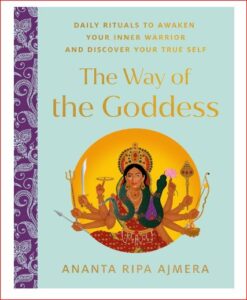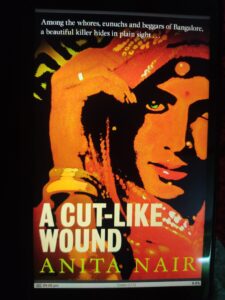
Book: The Autumn of the Patriarch
Author: Gabriel Garcia Marquez
Publication: Jonathan Cape Ltd
Pages:229
Price: Click the Link
Author:
Gabo alias Gabriel Garcia Marquez ( 1927-2014), one of the most significant authors of the 20th c. was a Colombian novelist, short story writer, screenwriter, and a versatile genius. He won the 1982 Novel Prize in Literature. Being a professional journalist he shows no inhibition in his lashing tone towards Colombian politics and this novel, The Autumn of the Patriarch, 1975, is the brainchild of that honest, dashing spirit.
About the Book:
This book The Autumn of the Patriarch was originally published in Spain in 1975. Later it was translated from Spanish by Gregory Rabassa. Marquez narrates the rotten body of power and the powermongers. The novel tracks the life of a dictator divided into six sections, each part delineates the story of power intrigues. According to the author, the book is a “poem on the solitude of power”
Opening:
The book The Autumn of the Patriarch is mostly a memoir of the Dictator in a rather confusing way. The story opens with a decade body, putatively the dictator’s, waiting for the falcon to eat up. But the falcons cannot reach him crossing the windowpane till section two. Eventually, there is great suspicion about the identity of the body,
“THE second time he was found, chewed away by vultures in the same office, wearing the same clothes and in the same position, none of us was old enough to remember what had happened the first time, but we knew that no evidence of his death was final because there was always another truth behind the truth. Not even the least prudent among us would accept appearances…”
He like an immortal raises from death many a time; so no one is sure of his death.
Character:
The main character is the dictator. He is an insecure person suspicious about everything, everyone. So whoever serves him and is attached with him has to die soon or later. He is a man of sexual perversion and disease. “…but Patricio Aragonés didn’t want as much as that he wanted more, he wanted them to love him…”.
Other characters are :
-
General’s beloved- He had so many concubines and innumerable children for whom he cares a fig. But though he indulges in random sexuality with any woman he likes he fell for a slum woman, Manuela Sanchez. But she vanished mysteriously allowing the General to get sucked by depression and self-confinement for a long period.
-
His mother Bendicion Alvarado used to live with him in Presidential Palace, but later she was exiled to a suburban mansion due to her disagreement with her son.
-
When his mother died he demanded that Catholic Church should canonize her as a saint. But Pope did not agree and the General expelled The clergies from his country. In the course of this power show-up, he again gets infatuated with a novice nun, Leticia Nazareno. Later she became his wife and mother of his sons. But she died a cruel conspirational death along with her little son by dogs.
-
Defence Minister Rodrigo de Aguilar was his power hand in every conspiracy. But very soon he suspected him of treason. He ordered his death and served him as a dish at a banquet.
-
Secret police chief Saenz de la Barra who used to kill and send the skulls to the General was also finalized to death by the General on the suspicion that he was working against him.
Political Context:
Marquez’s dictator is based on real-life leaders of the contemporary Caribbean. The concentration of power into a single man can cause disaster. Garcia felt this truth personally and his autocrat is based on those figures whom he experienced in his personal life in his homeland Colombia or any other country he visited. Therefore the general drawn here is a Universal figure.
Symbol and Metaphor:
-
The novel is crowded with the reference of many animals, mostly cow, hen, dog.
-
“…we saw a dining room that had been eaten up by the cows, the music room profaned by the cows’ breakage, the domino tables destroyed and the felt on the billiard tables cropped by the cows,…”
-
Among them, the cow is the most available and powerful figure just like the General.
-
“…could hear a disaster of hoofs and animal sighs from behind the fortified walls, and one January afternoon we had seen a cow contemplating the sunset from the presidential balcony, just imagine, a cow on the balcony of the nation, what an awful thing, what a shitty country and all sorts of conjectures were made about how a cow could get onto a balcony since everybody knew that cows can’t climb stairs, and even less carpeted ones, so in the end, we never knew if we had seen it or whether we had been spending an afternoon on the main square and as we strolled along had dreamed that we had seen a cow on the presidential balcony…”. “…the hens sleeping on the viceroys’ coatracks,”
-
This consistent reference and association of the General with the animals is a direct brilliant way to link the General’s status with the animals in a most mocking way.
-
Clock and time play a very vital role in this novel where time tickles backwards and forward touching the footsteps of past present and future in an arbitrary whimsical; confusion.
-
The corpse symbolises the rotten body of an internally torn power-populace despite outward shine and public frenzy.
-
Autumn is the metaphor that signifies old age decay death. Ruthless behaviour and savagery that keep them in power cannot overturn the ageing process. The Dictator is in the autumn of his life in spite of all the atrocities and crackdowns he practised.
Narrative style and plot structure:
Long paragraph extended sentences unconventional style, all expressive of the loneliness, the desperation of the General. Again, consistently changing the narrative point of view even in the mid of the sentence makes the readers quite puzzled. The novel is the most intricate work of Gabriel Garcia Marquez -a brilliant tale of power mongery and corruption, tyrannical violence, cruelty, deception, sadism, sustained rant on power sucker.
No conventional plot. No linear chronology. The novel leaps backwards and forward. The journey of the autocrat, his early life of poverty to the upliftment to a God-like power and then dying in isolation all are narrated in an intertwined way. Sometimes it becomes a tough battle to keep track of the storyline and plot. There is little punctuation or no punctuation and the lines are broken into several parts with a never-ending trail of thought. In more prominent words they seem more like a long drawling pronunciation of a somnolent voice.
Political Satire:
Satire is the most lingering tone of this novel that slash the narration as well as the portrayal of General in a disastrous mocking ferocity. The God-like figure is falling apart now and then with other associated imageries related to. General’s association with cows and other animals, his diseases, his rotten body and hilariously dreadful attitudes and thoughts are moulded in satire.
“…because none of us had ever seen him, and even though his profile was on both sides of all coins, on postage stamps, on condom labels, on trusses and scapulars,…”. Marquez’s description makes the figure fall flat on the funny book pages making his every attempt to hold the power supremely..futile.
Alvina’s Verdict:
Though now and then I lose my way in the labyrinth of complex narrative style and plot structure, yet I can affirm that this puzzle game makes the novel more intrinsic and captivating. Gabriel Garcia Marquez is all-time excellent and a polymath author with his every pen from One Hundred Years of Solitude to Love in the Timer of Cholera. He is the path-breaking writer, the canonical figure in English literature.







Pingback: The Great Gatsby,F Scott Fitzgerald
Gabo is always tough with miraculous profoundness
Gabo is always tough with miraculous profoundness
It’s in reality a great and useful piece of info. I’m satisfied that you simply shared
this useful information with us. Please stay us up to date like this.
Thank you for sharing.
Hello there! Do you know if they make any plugins to protect against hackers? I’m kinda paranoid about losing everything I’ve worked hard on. Any suggestions?
No, dear, I don’t know.